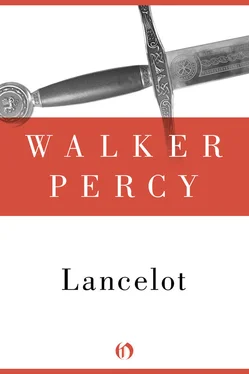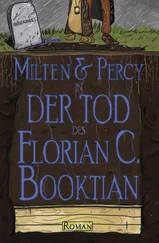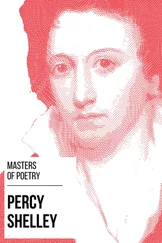Merlin was surprised to see me, but pleasant and talkative as usual. I told him I had come to make him welcome at Belle Isle and to be sure they had removed from the motel. Though the danger from the hurricane was slight, the motel was built in a swamp and could be flooded.
“You’re a beautiful guy!” Merlin came close and took my arm. He had a way of making any encounter between us exclude the others. His blue eyes were fond; the white fiber made the iris spin with dizzy affection. “How extraordinary that a real hurricane should be approaching the same time as our make-believe hurricane. Actually though, this scene has nothing to do with the hurricane.”
“I want to hear the zipper,” Janos Jacoby told Dana.
The set was the small public library in town. Town folk watched, standing, arms folded, sitting on aluminum chairs, on the sidewalk, on the grass, in the doorway. Inside, the library was a mess; it looked as if the hurricane had already hit, everything moved out of the way to shoot Margot and Dana in the stacks. The blue-white lights were brighter and hotter than the sun outside. Heavy cables snaked over the trodden grass like a carnival ground. Between shots Dana zipped his pants, fell back, and cleaned his nails, listened inattentively to Jacoby. As the librarian in the movie, Margot wore glasses around her neck, white blouse, cashmere cardigan, sleeves pushed up. She was not at ease. Her face was cheeky and her movements wooden. She was. I saw instantly, not a good actress. What she was doing was not acting, that is, imitating someone else, but acting like an actress imitating-someone-else. She was once removed from acting.
Dana was something to see: barefoot, tight jeans with silver conch belt, some kind of pullover homespun shirt, necklace with single jade stone, perfect helmet of yellow hair, perfect regular features, perfect straight brows flaring like wings. He moved well and had grace. He was an idiot but he had grace. He was a blank space filled in by somebody else’s idea. He was a good actor. His eyes had somehow been made up so they seemed to gather light and glow of themselves. The town folk gaped at him as if he were another species. Perhaps he was. Perhaps somewhere on the golden sands of California had come into being a new breed of perfect creatures, young and golden.
Margot couldn’t see me. The lights were too bright.
“This is a very short scene but a very critical one,” Merlin explained. “It is the sexual liberation of Sarah.”
“Sexual liberation?”
“Yeah. You remember. Dana is the stranger who wanders into town from nowhere and is so extraordinarily gifted — everyone is immediately aware of it. Thank God for the movies. Dana gifted? He barely had sense not to drown when he fell off his surfboard in Beach Blanket Bingo. But look at him, isn’t he something? We can create him from the beginning like a doll. I created Dana — Dana himself is nothing, a perfect cipher. This character, this stranger is immediately perceived by everybody as somehow different — for one thing his eyes, there’s an inner light, he’s a creature of light. Look at him. His normal temperature is around 101. He actually glows. Most important, he is free. Everybody else is hung up — as in fact everybody is, you’re hung up, I’m hung up. Right? Sarah is a Joanne Woodward type — though Margot is actually a bit too young and good-looking — but she has never known what it is to be a woman. You know. Her husband, Lipscomb, is out of it too. He sits wringing his hands while the plantation goes to pot. She holds things together, makes a pittance at the library. He’s hung up. Everyone is hung up. The sharecroppers, black and white, are hung up in poverty and ignorance. The townies are hung up in bigotry and so forth. Not only is the stranger free, he is also able to free others. There is the sense about him of having come from far away, perhaps the East, perhaps farther. Perhaps he is a god. At least he is a kind of Christ type.
“He fulfills people. He fulfills the longing of the sharecroppers for their own land — he discovers that Raine’s, Ella’s, family owns the land. He reconciles black and white — who discover their own common humanity during the hurricane. He even gets to the sheriff (God, I wish we could have got Pat Hingle), who despite himself is tremendously moved by this glowing nonviolent vibrant creature — actually there’s a strong hint here of Southern sheriff homosexuality, right? He almost reaches Lipscomb, who has lost his ties with the land, nature, his own sexuality. He does reach Sarah. He walks into the library and while her mouth falls open, he simply goes to the bookshelf, takes down the Rig-Veda, and reads the great passage beginning: ‘Desire entered the One in the beginning.’ Then, again without saying a word, he takes her hand and leads her back into the stacks, where he takes her standing against the old musty books — Thackeray and Dickens and so forth — representing the drying up of Western juices. There’s a lovely tight shot of her face while she’s making love against a dusty set of the Waverley novels. Great? The stranger is the life-giving principle, the books are dead, everyone is dead, Thackeray is dead. Scott is dead, the town is dead, Lipscomb is dead, she is dead, or rather she has never lived. So what we are trying to get across is that it is not just screwing, though there is nothing wrong with that either, but a kind of sacrament and celebration of life. He could be a high priest of Mithras. You see what we’re getting at?”
Something went wrong. Jacoby called for an Arriflex hand-held camera and his assistant Lionel couldn’t locate it. Jacoby came over to talk to Merlin. More or less automatically I held out my hand — not that I wanted to shake hands with him, but we know in the South that the real purpose of manners is to make life easier for everyone, easier both to keep to oneself and to avoid the uneasy commerce of offense and even insult. Either one shakes hands with someone or one ignores him or one kills him. What else is there? Jacoby ignored me. His bemused eye looked through me and past me. I do believe that he did not insult me but rather did not see me. In his absorption I was part of the town decor, one of them. Merlin noticed the oversight and was embarrassed, cleared his throat, did not know what to do. There’s the function of manners: that no one will not know what to do.
I rescued Merlin by asking him how long they were going to work today. “Oh, late! Late!” cried Merlin cordially. “And thanks so much for putting us up”—looking to Jacoby to echo thanks but Jacoby only nodded vaguely. I escaped and went out through the back, the office of the librarian.
Raine and Lucy and Miss Maude, the librarian, were there. Raine kissed me with every appearance of pleasure — what is she? actress? flirt? wanton? nice affectionate girl? Lucy followed suit somewhat absentmindedly. She was so frantic in her crush on Raine that she hardly noticed me.
“Isn’t it exciting!” said Raine, putting her hands on my shoulders, rocking me a little, brushing knees. One knee came between my knees.
“What?”
“The hurricane!”
“I don’t think it’ll get here.”
“But the light! Haven’t you noticed the peculiar yellow light and the sinister quietness about things? Isn’t this usually true of hurricanes?”
“I suppose. I hadn’t really noticed.”
“I was telling Lucy that there is more than coincidence involved here.”
“How’s that?”
“How could such a coincidence happen, that at the very time we are making a film about a hurricane, a real hurricane should come?”
“Well, it could. This is hurricane season.”
“What are the mathematical chances involved? One in a million? There is more than weather involved. There is more than light involved. I feel the convergence of all our separate lines of force. Can’t you feel something changed in the air between all of us?”
Читать дальше












